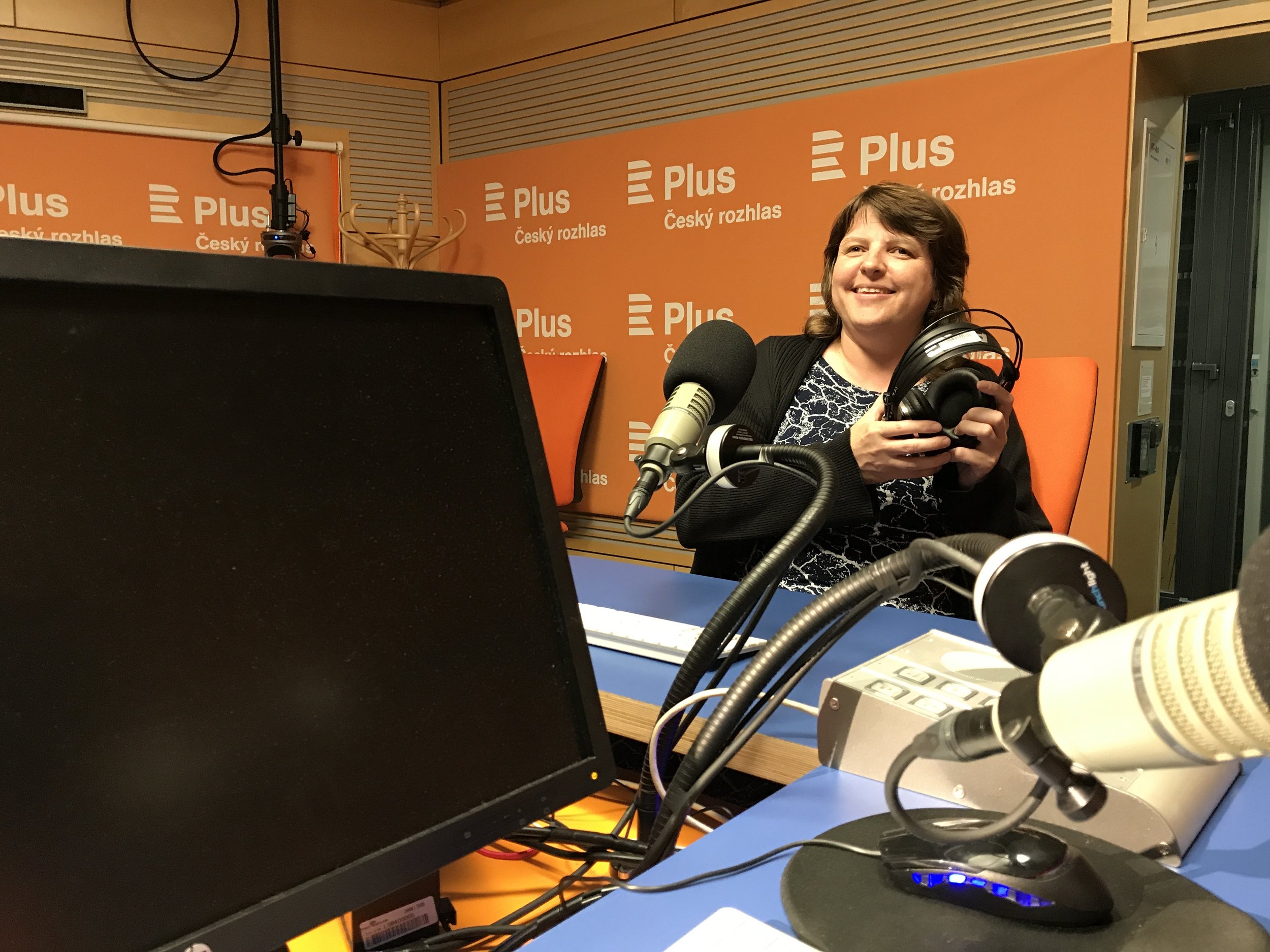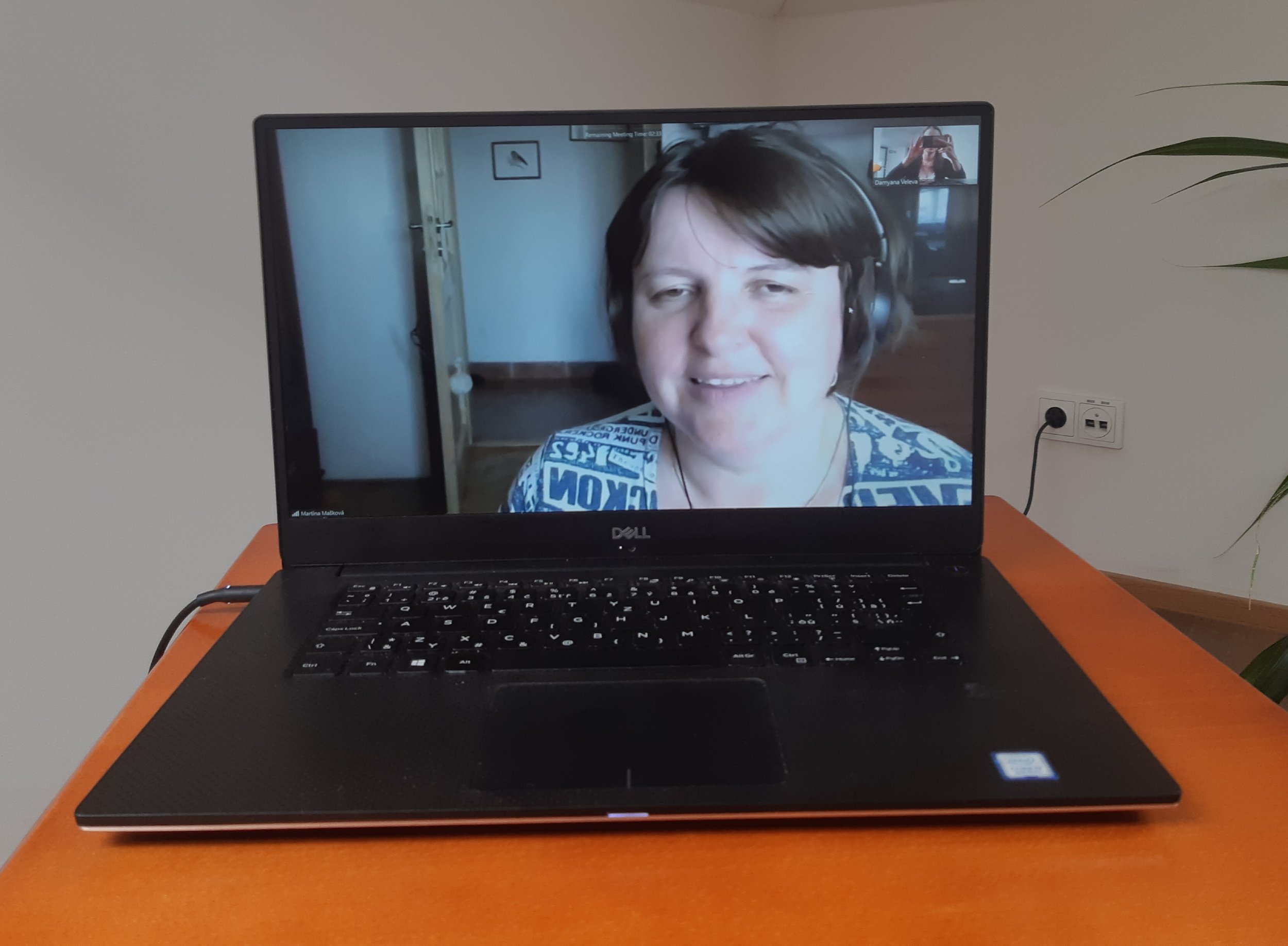Faint Signs Of Faith Part 1: The Communist Regime's ‘Witch Hunt’ For People Of Faith In Prague
Editor’s Note: This is the first installment in a 7-part series reported by 24 young journalists from 16 countries who studied at the European Journalism Institute in Prague in July of 2022. EJI is co-funded and programmed by The Media Project (the parent non-profit of ReligionUnplugged.com) and The Fund for American Studies. EJI 2022 took place at Anglo-American University.
PRAGUE — Hiding in the back of a small Trabant car, Martina Mašková didn’t fully realize what could happen if someone saw her. She and her friend had escaped school activities in order to go to a Sunday Mass. The Catholic priest then drove them back with his own car to the school camp where they were supposed to get civil defense training.
Such training was regular for schoolchildren in the countries from the Eastern bloc during the Cold War and was intended to prepare them for an actual war. But instead of learning how to use guns, grenades and gas masks, Mašková and her friend ran away to attend a religious event.
“We were getting back and suddenly there was the teacher, riding a bicycle next to the car,” Mašková recalls. “If he had seen us, I’m sure we would have been expelled. We had escaped from the camp and we were in the car of a priest, can you imagine?”
This might not sound so shocking now, but in communist Czechoslovakia in the 80s, being religious could get you in trouble. Mašková, now 50, comes from a Catholic family from Nachod, in the northern part of today’s Czech Republic. She and her family preserved their faith despite the oppression of the communist regime.


A history of oppression
Being born in the final decades of the Communist government, Mašková feels lucky. By that time, its hold had already weakened, she recalls. Just a couple of decades ago, her parents and grandparents were risking a lot more than being expelled from school by practicing their religion.
“For my grandparents it would be much worse. They would go to prison,” Mašková said. “For my parents it could mean problems at work.”
In fact, Mašková’s relatives were among those oppressed because of their faith. She has examples: Her grandfather, a teacher, was fired because of his affiliation with the Catholic Church. Her mother was not allowed to study to become a teacher on the same grounds. This was particularly hard for any member of the family with a tradition of teaching at schools and universities.
Mašková herself was threatened that she could not study at university because of her and her family’s religion, she says. But then the Velvet Revolution of 1989 came, and she suddenly could do whatever she wanted, regardless of her religion.
A modern witch hunt
In the previous decades, however, thousands of people in Czechoslovakia were put under pressure, slandered and persecuted by the Communist authorities because of their faith. In the Czech Museum of Communism, this practice is referred to as a “modern witch hunt.”
“Organized religion had always been a thorn in the communists’ sides,” reads the description of these events.
The persecutions were harshest in the first years after the Communist Party of Czechoslovakia took power.
“During the years following the communist putsch (coup), the regime was trying to destroy every group which might look like the opposition, or which had another system of values and was not compatible with the communist system,” said František Štambera from Post Bellum — an organization that collects the memories of those who survived the oppression.
Depending on the period, practicing one’s religion might mean disqualification for promotions in jobs, access to higher education or participation in public life. That’s why all kinds of religious practices took place in secrecy. Martina Mašková vividly recalls how her aunt and uncle would travel to other towns and villages to go to Mass. This way they hoped no one from their town would see them and report them to the secret police.
When Mašková was a child, her parents gave her a children’s book about Christianity. But they pointed out the danger — “Don’t talk to anybody who brought the book,” she recalls them saying.
All religions were targeted
All religious communities were threatened, František Štambera from Post Bellum said. In the organization’s online archive, Memory of Nations, there are stories of people of different religious communities targeted by the Communist government because of their beliefs.
“Their goal was to shatter the structures of religious communities and discourage followers of religions,” Štambera said.
He points out two main reasons for the Communist government’s oppression of religious communities.
“The first is ideological: The religious beliefs are more based on metaphysical understanding of the world and altruism than on materialism,” Štambera said. “The second reason is absolutely practical: A communist regime needs to establish its own structure and destroy the other.”
Priests bore the burden
Martina Mašková and her family, however, preserved their faith during these hard times. Among the reasons, she says, is the commitment of the priests in her community. She remembers them coming to her family’s house secretly despite all the risks. They were interrogated by the police and were often moved from one place to another so that they could not make connections with the local people.
“For the priests it was very difficult,” she recalls. “It was them who bore the burden.”
In spite of all the difficulties, the priests helped people preserve their faith, Mašková said. She and her family kept the connection with those who are still alive, and they still meet each other decades after those hard times.
“We are not heroes (for preserving our faith),” Mašková said. “But for us, they are, because they helped us do so.”
Elitsa Simeonova has been working as a journalist for more than three years and has a bachelor’s degree in journalism.
Damyana Veleva has been working as a journalist for the Bulgarian service of Radio Free Europe / Radio Liberty since 2021. She received a master’s in Islamic Studies from Free University in Berlin.
Editor’s Note: This is the first installment in a 7-part series reported by 24 young journalists from 16 countries who studied at the European Journalism Institute in Prague in July of 2022. EJI is co-funded and programmed by The Media Project (the parent non-profit of ReligionUnplugged.com) and The Fund for American Studies. EJI 2022 took place at Anglo-American University.
-
Being born in the final decades of the Communist Czech government, Mašková feels lucky. By that time, its hold had already weakened, she recalls. Just a couple of decades ago, her parents and grandparents were risking a lot more than being expelled from school by practicing their religion.
-
Almost all of the pieces are religious, taken from churches, basilicas and private chapels. They are echoes of a glorious religious past — one that contrasts with the fact that most of the Czech Republic’s population today is religiously unaffiliated.
-
As I researched media content, it became quite clear to me that churches find their place in the news primarily (if not only) when the subject is business or economics related — church properties and estates — as if shaking away the communist past; political and/or financial correlations. Looking at the local religious life — it barely ever is a subject of media focus.
-
Old Prague’s Jewish quarter was once a walled-off ghetto where the bulk of Bohemia’s Jewish community resided apart from the Christian majority, partly for their own protection. It is now little more than an open-air museum
-
Muslim tourists and locals in Prague find solace in their accessibility to Middle Eastern, halal food along with tourist hot spots. What’s special about such accessibility is that digital media now promotes “halal tripping” or “halal tourism.”
-
Although the Czech Republic is the most atheist country in the world, people still practice religious traditions today. Simultaneously, there are many factors contributing to the change of religious food culture in the Czech Republic, like globalization, tourism and immigration.
-
Regardless of one's religious affiliation, Prague’s Church of Our Lady Victorious’ breathtaking architecture and rich history make the church an irresistible attraction for travelers. While most can find this to be a unique spiritual experience, locals of Prague have a rather interesting relationship with the church.

